No products in the cart.
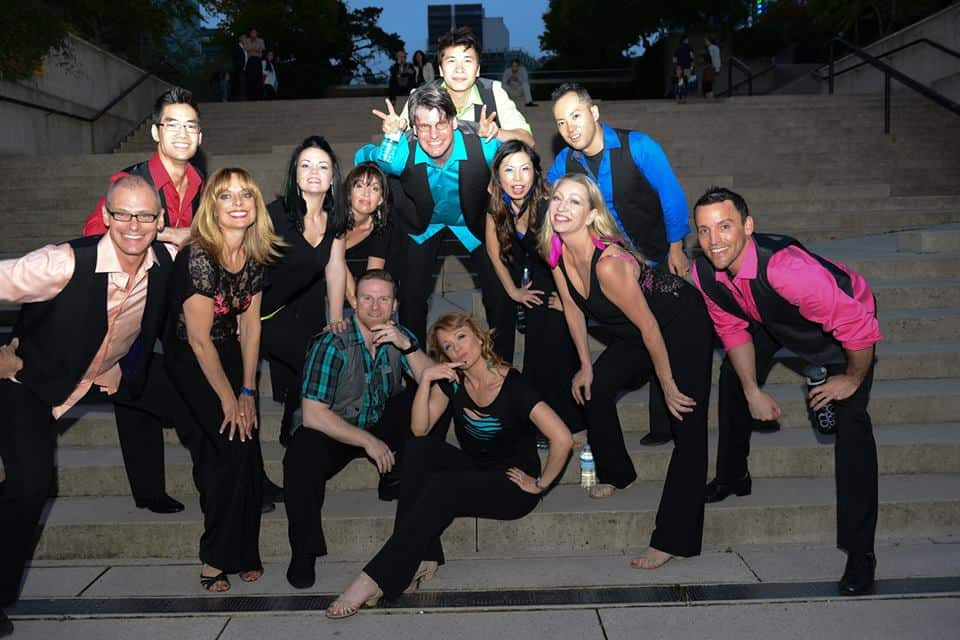
Taking Leadership to Grow Your Dance Community
Reading Time: minutes remaining
You may or may not be a dance teacher, but you might be someone who people look up to in your local dance community. Someone who rallies the troops, who encourages the newbies, who stays late to help out, who’s full of ideas and desire to build and grow their community so they have more buddies to play with! Or maybe this could be you, with a little guidance…
In any organized activity, there are common goals:
1. Assemble and organize people with common interests
2. Produce activities focused on those interests
3. Promote the interest to attract more participants
4. Improve all participants’ experience of the activities
But if you aren’t interested in making money from West Coast Swing, this doesn’t mean you are a powerless participant. Anyone of any ability level can contribute to any of these goals at any level of involvement or commitment, in order to grow your community. Get inspired by the list of ideas below and feel free to contribute your own in the comments.
If you consider yourself already in a position of leadership, or aspire to step up to a leadership role in your dance community, it is important to consider your own motivation. Many dancers who take leadership fail or get frustrated because they fool themselves on their real reasons for trying. They claim that their reasons are altruistic – that they just want to “serve the dancers” and for “everyone to have fun”, etc.
But if money, ego, or status starts to become important to you, you need to be honest about it because it’s more transparent than you might think. If you truly have no interest in these things, all your actions should be in alignment. If you are interested in making a business in dance, you will be more respected and more successful if you are up front about it and still make serving your community your top priority.
In light of our common goals, here are some ways you can inspire and grow your WCS community. These are just a brainstorm list of ideas – just a sample of the upcoming Swing Literacy Community Building Program we have in the works – stay tuned!
Working together to improve skills
- Organize group privates with a local or visiting Pro
- Host a video-watching party: watch event competitions
- Announce a personal goal of the night – private or shared (ex. one-footed spins, or asking 5 new people to dance)
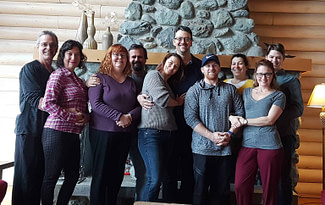
- Divide & conquer event workshops: disperse to different workshops then share what you learned
- Host/Organize a Pro workshop. Stay tuned for this blog article coming soon!
- Organize a group carpool/roadtrip to a neighbouring city for a night of social dancing
- Run Peer Jam Sessions: These are tricky because they involve sensitive feedback skills. Check out our blog article: Giving & Receiving Feedback
- Have a “theme of the week” discussion and practice
- “Two stars and a wish” critique sessions
- Group brainstorm on a particular topic or issue
- Small group feedback sessions focused on private lesson homework you have in common
How to develop newbie dancers at a social dance
- For first timers: don’t teach/emphasize counting or footwork – just elasticity and passes. They can learn the other stuff in their series class.
- Don’t say “it’s a hard dance to learn”
- Don’t stress about “wrong” moves – explain that mistakes are “happy accidents”
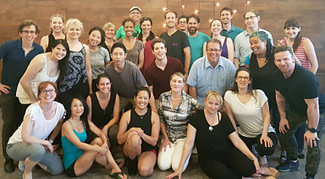
- Stretch even when they don’t
- When social dancing, gradually add more variations towards the end of the song
- Introduce the newbie to someone else
- Do NOT correct them or try to teach them a move in the middle of the floor
- Trying to teach them may be hindering instead of helping. Refer them to an instructor.
- Recommend instructors and explain the value of private lessons
Behavior
- Like it or not, you are a role model and newer dancers watch you for social cues
- Model a welcoming, inclusive attitude
- Approach and introduce new dancers around
- Invite everyone to dance – all levels, ages, body types etc.
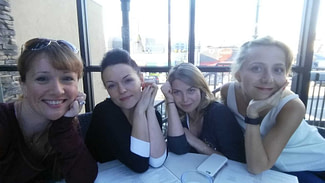
- Learn the opposite role and dance with the same gender
- Never turn down an invitation then accept another during the same song
- Circulate in the room – don’t hide in one corner
- Be attentive and encouraging during every dance
Ideas for existing regular dance parties/classes
- Celebrate awards won by local dancers at recent events
- Announce out of town guests, announce instructors in attendance
- Display flyers of out of town events and local specialty workshop opportunities
- All Intermediate & above dancers are expected to ask 3 newbies to dance per night
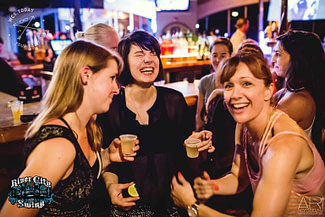
- Award a periodical “Most Improved” or “Favourite Social Dancer” award – by vote
- Designate volunteer rotating Taxi dancers
- Invite guest DJ’s or have a DJ challenge
- Check with other dance venues to avoid conflict and to cross-promote
- Offer a College night. Collaborate with campus clubs – pay attention to the school schedule.
- Offer a “Baby Boomers” theme night, with or without a “classic swing” emphasis
- Have social dance etiquette rules posted tactfully or handed out
- Pay attention to gender balance (ie. Leaders shouldn’t follow if many followers are sitting down)
- Have You Tube clips playing on a screen at the dance
- Cross-promote/demo at Salsa & Lindy Hop dances
- Arrange apres-dance outings to a bar or midnight meal
- Think carefully about venue lighting and decor – what image/atmosphere are you trying to present? If some random walked in to the dance, what would his/her first impression be of the music/attendees/space?
Manage and take advantage of online communications
- Direct people to appropriate resource websites like this one! Offer links on your community WCS pages. Browse through our massive WCS FAQ section.
- If a neutral community Facebook group doesn’t exist yet, make one!
- Use Facebook but acquire email addresses
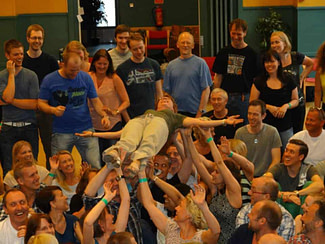
- Keep Facebook page and website up to date so people learn to use it and trust it
- Send out one weekly email/broadcast – no more
- Respond to Facebook events and invites to generate buzz
- Publish a “Social dancer of the week” interview
- Take and post photos online ASAP after the event
- Follow and participate in online blogs or forums. Here’s a great list of online resources
Motivation & incentives
- Have a “Bring a friend” or “1st time free” special
- Host an annual awards ceremony to celebrate social and learning achievements
- Intermediates who help in beginning classes get 50% off their class
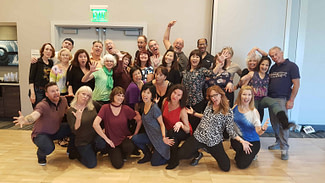
- Serve snacks – snacks make people happy. Invite volunteers to contribute whenever they can, and be sure to acknowledge them.
- Routines: Team Routines, Pro-Am, Rising Star – educate and encourage dancers to challenge themselves and offer opportunities to perform. Here’s an article for those considering a routine
- Hold a contest for various team-building games: Bingo, Poker, Musical Chairs, etc.
How to appropriately present WCS to the public
- Dress appropriately for the venue – dress like the people you are trying to attract, but in a way that still represents the dance. No skirts.
- Choose dancers to demo who are of the same age demographic of those you are trying to attract.
- Choose *non-explicit* music that will appeal to the demographic you are trying to attract.
- Direct people to appropriate You Tube clips
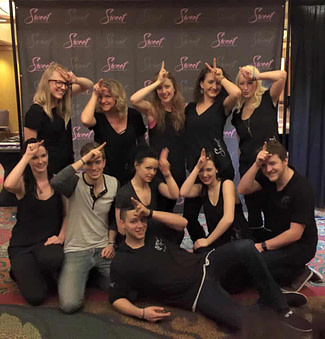
- Organize a Flash Mob in a crowded public space, armed with promo material. Take video and post it to You Tube.
- Westie-Bomb a bar or casino, armed with promo material
Community Leaders need the support of a team – gather a group of like-minded dancers and rally together to pull off some of these great ideas and watch your community explode!
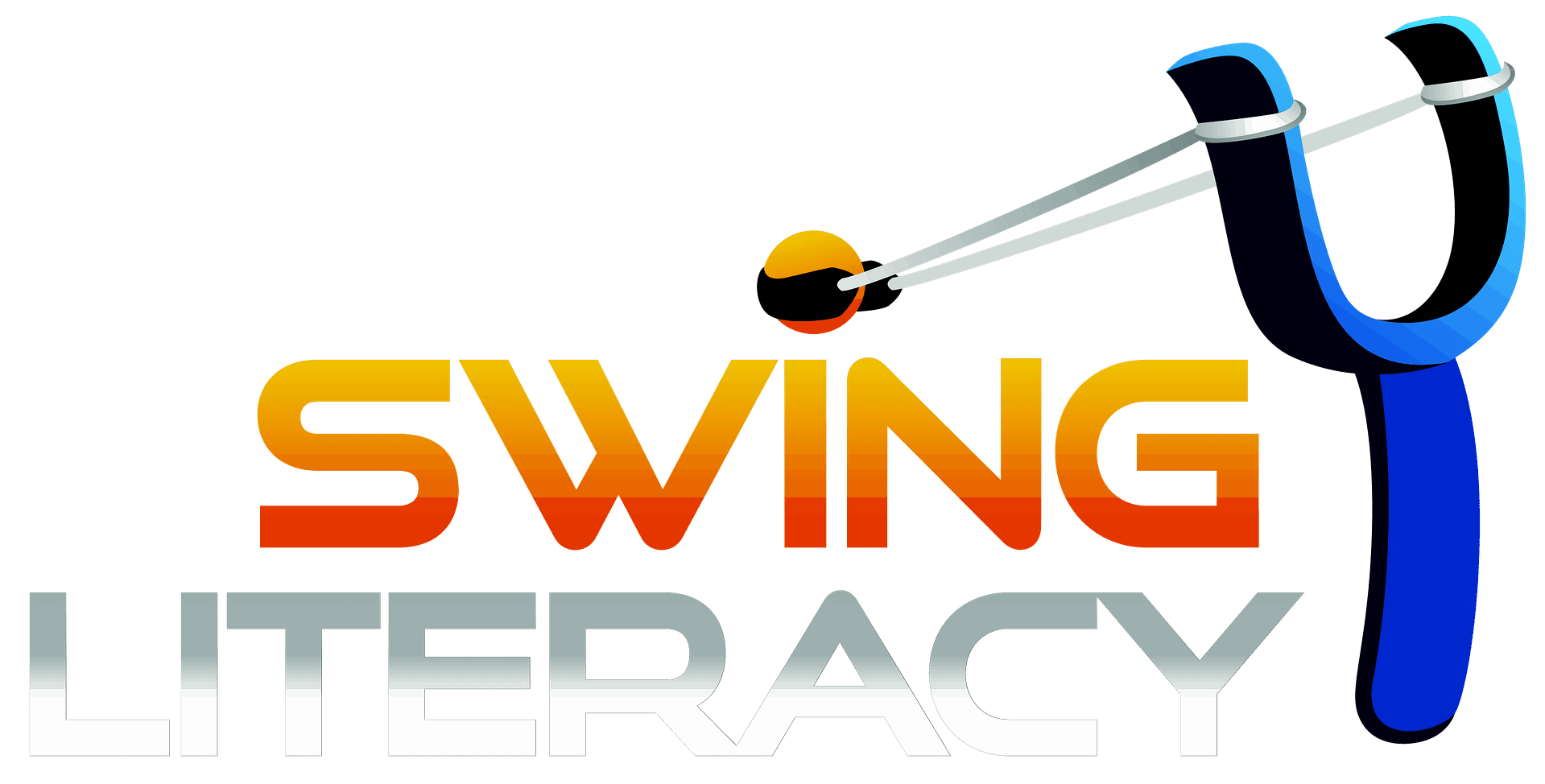
There are a lot of follows here in the Seattle community, so we organized a Seattle Follows social group. We do activities that are non-dance related, such as coffee before a dance, movie night, or even an annual clothing exchange.. It gives us the opportunity to bond and get to know each other outside of the ballroom. Now, when the ballroom is severely off-balance, we find ourselves still enjoying the company of people we have come to call friends. It also gives new follows a great way to meet people.